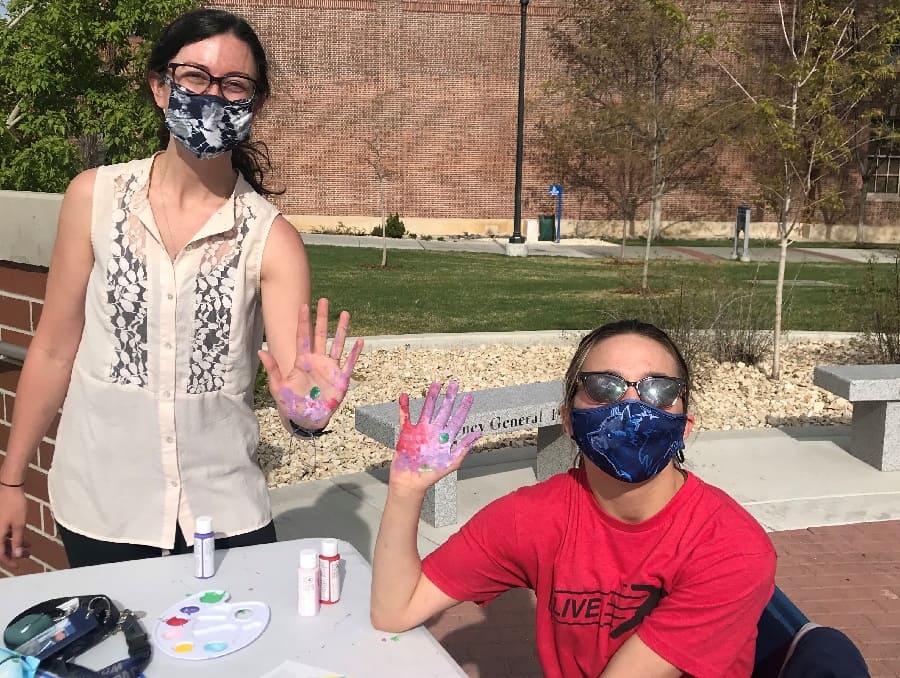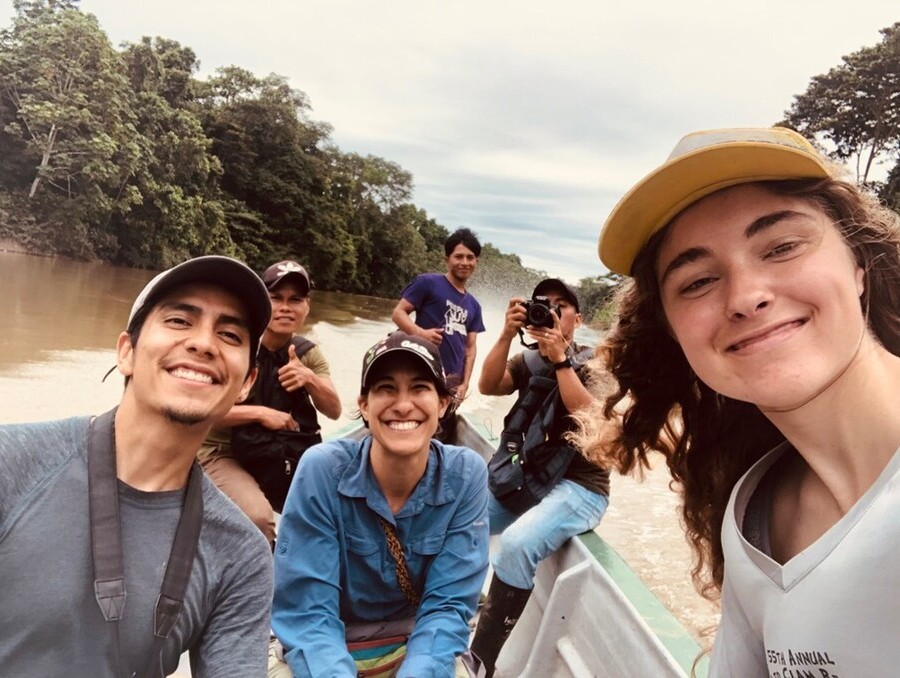The Peer Mentor Program at the University of Nevada, Reno Disability Resource Center has been bettering the lives of students and faculty for a decade, pairing undergraduate first-year students with student and faculty mentors.
“The initiative has grown beyond what I could have ever imagined was possible.”
Mentorship pairs meet once a week and do anything from working out to studying to getting coffee or a meal together. The goal is to help the first-year students navigate campus life, their classes, and the dramatic changes that come with entering University life, changes that can be magnified for students with special needs.
In addition to mentors and mentees meeting up on their own, the DRC puts together events for the pairs to attend together. These events range from art therapy to workshops on money management to yoga classes. Counseling Services at the University organized a support group for mentors, during which they can discuss any challenges their mentees might be having and talk about navigating their roles as mentors.
The program provides incoming students with the opportunity to feel like they belong on campus right from the start. Mentors help to create an inclusive and welcoming environment for new students, easing the transition to life in college. The experience and knowledge that the mentors have of campus life and University life is the most central and crucial element to the success of the mentees and the program. Assistant Director of the DRC Mary Anne Christensen says that students and faculty become mentors to help students that they can relate to.
“The mentors understand just how difficult it is to assimilate to college life, even without a disability,” Christensen said. “The initiative has grown beyond what I could have ever imagined was possible.”
The program originally grew out of the relationship that two Ph.D. candidates formed through the DRC 10 years ago and gotten bigger since then. Christensen nurtured and developed the program into the vast network of people, events and success stories that it has become. The program is built on the desire for incoming students to assimilate into college life and to successfully build meaningful and lasting relationships in their time at the University.
Students who have taken part in the Peer Mentor Program and allies are given lilac-colored tassels and cords when they graduate from the University, a tradition that was started by students in the Peer Mentor Program back in 2018.
“Students wanted a token of their time in the Peer Mentor Program to show when they graduate,” said Christensen. “The best part of the lilac graduation tassel story and all it has led to, is that it is all about students. It started with students, was led by students and will continue to be driven by students.”
The Peer Mentor Program enriches the lives of both mentors and mentees. Mentees learn about campus resources and to not be shy about using them. They learn how to talk with professors, how disabilities impact learning, and how the DRC can help. Mentors learn more about themselves, develop leadership abilities, build their resumes, deepen their knowledge of campus, and hone their mentorship abilities. Most importantly, mentors and mentees build meaningful and lasting relationships with each other.
Incoming students who want to be paired with a mentor or University community members who want to become mentors can apply online on the DRC website.
















